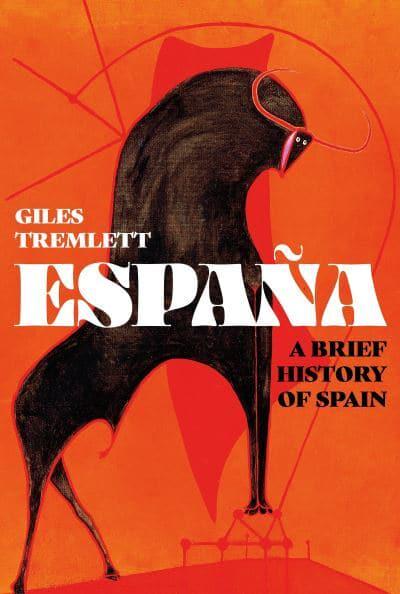España: A Brief History of Spain by Giles Tremlett at Oxford Literary Festival

By our Hispanic Affairs Correspondent
On the final day of Oxford Literary Festival, Giles Tremlett gave a talk at Lincoln College about his book España A Brief History of Spain. Mr Tremlett is a distinguished journalist, writing for the Guardian, and El País; he is also a historian, with books about “Spain’s hidden past”, which he explores in his first major work The Ghosts of Spain, and about the International Brigades.

Giles Tremlett began with a conundrum. Why does the Spanish National Anthem have no words? The answer, it seems, is that any possible set of lyrics would fail to unify Spaniards and would risk being too partisan. This led Mr Tremlett to the dominant message of his talk, namely that there are certain repeating themes in Spain’s history and that Spain has been experiencing the long-drawn-out pain associated with loss of empire.
Four dates were identified as crucial:
1492 Unification of Castile and Aragon, and the beginnings of Empire.
1898 The end of Empire, with the loss of Cuba, Puerto Rico, and the Philippines
1936 Civil War
1975 Democracy wins over Dictatorship
Referring to 1492, Mr Tremlett described the tension between outward-looking Spain “open to the four winds” and closed Spain, which from 1492 obliged Jews and Muslims to convert or be expelled.
Four hundred and four years later, the mighty Spanish Seaborne Empire ends with “El Desastre” - traumatic defeat to the USA and loss of the last colonies. This gives birth to two conflicting political interpretations:
- Spain needs to regain her ancestral greatness,
Or conversely
- Spain must stop living in the past, look outward, and modernise.
This polarity explodes into internecine conflict in 1936, where Franco’s Falange claim the symbols of the Catholic Kings, while the Republic resists in the name of Progress and Modernity.
Giles Tremlett sees 1975 and the death of Franco as the start of a difficult transition towards Social Liberalism, attempting to deal with the rifts and fault-lines which have emerged since the loss of Empire. One thinks of the 1981 attempted coup, the Basque terrorist troubles, fractiousness over Catalonia, political corruption scandals, and the abdication of King Juan Carlos.
Listening to Mr Tremlett’s talk, it was hard not to think, also, about the UK. How smoothly have we made the transition from Global Imperial Power to Twenty-first century State? As we watch Spaniards argue over their Constitution and their Monarchy, what thoughts arise regarding our own future? And what do we now make of our imperial past? Is it a source of pride and unity, or of ongoing culture wars? And as Mr Tremlett pointed out in conclusion, “the Spanish got there first”, so perhaps the history of Spain has something to tell us about the destiny of all post-imperial nations.
Given on the final day of the Oxford Literary Festival, Mr Tremlett’s talk was a masterpiece of thought-provoking concision.
You can buy the book here:-
https://blackwells.co.uk/bookshop/product/Espaa-by-Giles-Tremlett/9781789544374